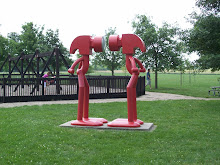Who biddest the mighty ocean deep, It’s own appointed limits keep,
Oh, hear us when we cry to Thee, For those in peril on the sea.
If you or someone you love has had the privilege of calling themselves a sailor, no doubt you recognize the words of The Navy Hymn. Written as a gift for a student sailing to the U.S. in 1860 by the Rev. William Whiting, a schoolmaster and clergyman of the Church of England, the poem was originally based on Rev. Whiting's experience of surviving a terrible storm on the Mediterranean. A year later, these words were put to music by the Rev. John B. Dykes. The tune was named “Melita,” for the island now known as Malta, in reference to the place where the Apostle Paul took refuge after his ship capsized (Acts 28:1).
A few years later, the tradition of using The Navy Hymn to close Sunday services at the United States Naval Academy in Annapolis began. It was played at the funeral of President Franklin Roosevelt, who had served as Secretary of the Navy, and when President John F. Kennedy’s body was carried up the steps of the U.S. Capitol in honor of his naval service. Since that time, lyrics have been added to honor the Seabees, the Marines, the Navy SEALs, submariners and divers, the Coast Guard, and even those who wait for loved ones to return home.
As a native of landlocked Nebraska, this hymn never really had much of an effect on me. I had no practical understanding of how vulnerable sailors must feel when faced with oceans vast and treacherous. That all changed about a year ago, when the Hussies played for a group of elderly veterans of World War II. These shipmates had served together aboard the LST 944, a Tank Landing Ship that had participated in the assault and occupation of Iwo Jima in February 1945, and Okinawa Gunto, from April through June of that same year.

We didn’t know when we were hired to play for this reunion that there was a special significance to this particular night. It was to be the final gathering of this group of men and their families. Age had taken its toll on many of them, and few remained healthy enough to travel from around the U.S. to take part. But their sense of joy of being together had not dimmed, and we were able to charm them with our music and humor. We began that evening as strangers, and left as friends, knowing we had been able to minimize the sadness of their final reunion and help them celebrate what they had meant to each other all these years.
It was because of that evening that I have a new appreciation for the sea and for the war these men fought so gallantly. As I looked into the faces of these ordinary men who had gone on to live regular lives, I saw the faces of heroes, living, breathing, real-life heroes. And because of that night, I now have a better understanding and respect for their commitment and their steadfastness.
The sight and sound of these men and their families joining together to sing The Navy Hymn will remain with me for a long time. Never again will I hear that song and not think about these men who touched my life with their humility and the gift of freedom they have given us all.
